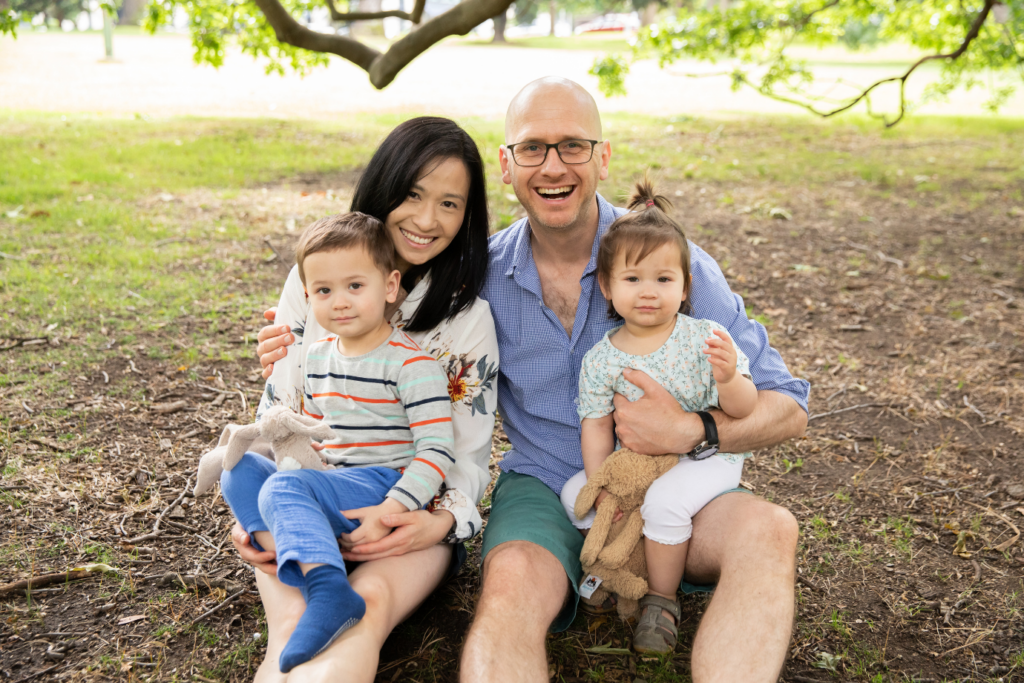Our son was just two years old when we started having him assessed for autism, but we entered that process certain of the outcome. The diagnosis, when it finally came, was not met with disappointment or grief, but with a grim kind of satisfaction.
The real grief had been suffered all those times I had looked at Harry, stricken by separation anxiety and screaming, because I had absent-mindedly let go of his hand in public as I went to pull out my wallet to pay at a shop. Each time I took a phone call from the secrecy of the car, because conversations with invisible people were strictly forbidden, particularly if those conversations were about him.
Before motherhood, I had a respectable career as a corporate lawyer. My spare time was packed with hobbies, partly driven by passion and partly by a need to impress people. Then, I found myself returning from maternity leave as the mother of two children under the age of two, the eldest exhibiting a disturbing pattern of demand-avoidant and complex behaviour, and suddenly my impatient but efficient way of life ground to a halt.
We began taking Harry to see a host of paediatricians and therapists shortly after his first birthday. By the age of two he was refusing most solid foods and sabotaged our attempts to carry out any acts of self-care on his behalf. At times, he lost the ability to walk and was hoisted around the therapy room from under his armpits. I caught a whisper of something called applied behaviour analysis (ABA) therapy, well known in the US where it is fully funded by insurance but considered something of a last resort in Australia. ABA is regarded to be highly effective when commenced in the preschool years and conducted to the recommended 20-40 hours per week. My husband, Paul, and I realised that to do this successfully, one of us needed to give up our job and become Harry’s full-time carer.
Despite the egalitarianism with which Paul and I approached our relationship, that decision point swiftly sorted us back into traditional gender roles. There was a basic mathematics problem that no amount of feminism could overcome, which was that Paul earned more than me, so the income that was to be given up would have to be mine.
I quit my job and for the next three years, I stayed at home and held Harry’s hand in the most literal sense. The therapists focused on teaching him the functional skills that he needed to be school-ready – an elusive goal I was chasing if I were ever to work again – things like wearing shoes, turn-taking and going into the care of another trusted adult. It was play-based, built around his special interests and he was mostly enthusiastic, but his extreme separation anxiety required that I be tethered to him, almost constantly, for the first two years.
The melancholy that descended upon me was heavy. I didn’t miss my job, but spending my days as the shock absorber between Harry and each uncomfortable interaction he had with the world, stifled the life out of me. I gave up my hobbies, I stopped reading the news, and since Harry didn’t tolerate phone calls, I didn’t talk to friends. Melbourne’s oppressive pandemic lockdowns served only to compress the walls around me tighter.
My constant placating of Harry began to invade other areas of my life. Paul and I were also parents to Tessa, 14 months younger, so tensions frequently ran high. We argued about when to push Harry and when to accommodate him. As time wore on, I increasingly deferred to Paul to make these decisions, despite being the one who spent the most time with Harry. I started doubting my ability to make good decisions, perhaps because I had once known what it was like to feel worldly and competent. I acutely felt otherwise.
Being a full-time carer to a child with complex needs had insidiously eaten away at my ability to back myself, and Paul had unwittingly expanded to fill the gap my shrinking presence left behind. He set the agenda and in disagreements had the final say. He hadn’t married a wallflower, he had married a fierce and capable woman, but she was nowhere to be found.
Eventually, Harry was able to engage with his therapists without my constant presence. He did acquire the skills necessary to go to school and enjoy being there. With urgency, I realised my need to return to work and resume my hobbies. My entire purpose in life for three years had been tied up with the outcome of what my special needs son could or couldn’t achieve, and although I could influence the approach, its actual success or failure was largely outside of my control. So, although it was uncertain whether our family could withstand the additional stress of playing a game of logistical Tetris, I did those things.
A year later, the balancing act remains precarious. Paul reined in his work commitments to share the domestic load, but it is a challenge to find a moment to come up for breath. Still, there is something to be said for being able to relate to my friends again, and hearing my kids ask what I do at this mysterious thing called “work” with the same wonderment that they ask their father.
Like many women, I earned the title of special-needs mum around the peak of my working life. It has become my pivotal role, but pushing back against its consuming nature has kept our family together.
And in that pushback, I’ve reclaimed something of myself – not who I was before, but someone who understands that motherhood, like life, is an ever-evolving negotiation. Losing oneself is always a risk, but rediscovering who you are is possible and life-changing.

